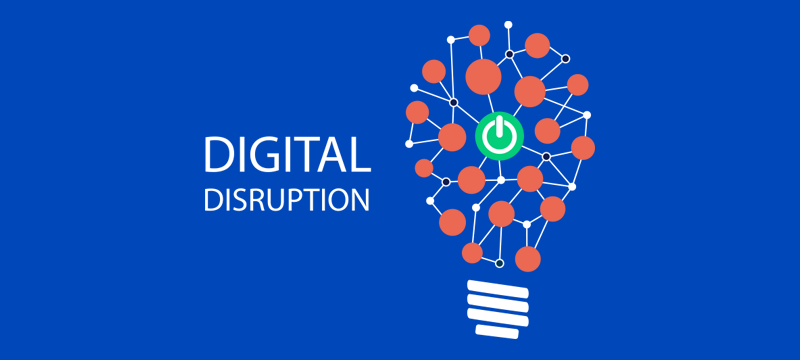The events of 2020 have had a significant impact on eCommerce, driving more consumers online and causing internet spending to jump from 23% to 36% of all retail sales. While that may seem great news for outlets, not every online store is benefitting.
The ones making the greatest progress are those quick to adopt the new technologies that satisfy the demand for better customer experiences. Here, we’ll look at some of the main disruptive technologies affecting eCommerce in 2021.
- eWallets
eWallets or mobile wallets are highly popular and are predicted to account for 50% of all eCommerce sales by 2023. They can be used in physical stores and online to pay for goods and services and, for eCommerce companies in particular, they help reduce shopping cart abandonment rates and thus increase conversions and sales.Their popularity comes from offering the enhanced CX of not having to enter payment card details on a checkout page, bringing the ease of one-click payment functionality to any websites that adopt this payment method. Though the complexities of adopting a system that accepts payments from multiple eWallet providers can be challenging, the financial benefits are likely to be worth the effort.
- eCommerce subscription platforms
Subscriptions are becoming one of the main new ways for consumers to buy products and services. Indeed, people are now even buying cars by subscription. It’s everywhere in eCommerce, customers can use it to get monthly deliveries of razor blades, wines, health and beauty products, food recipes and ingredients, as well as more traditional services like film and music streaming. You can now subscribe to regular deliveries on Amazon and eBay and even from the milkman. And the number of things being offered is growing all the time.The reason for its popularity comes from the ease in which a subscription customer gets the product order once and continue to get them delivered for as long as needed. Subscriptions also often come with a price reduction and they are easy to manage. People can log in to their accounts to change dates, frequencies, add new products, cancel orders, etc. direct from their phones.
With subscriptions sales set to grow by almost 70% by 2025, now’s the time to consider offering them. To do so, your website will need to make use of a suitable subscription platform that provides the customer experiences consumers expect. These should allow shoppers to curate the products they want and personalise their experiences, automate purchases and access the benefits of being a subscriber, such as discounts and special offers.
The platform your website uses needn’t be expensive, there are WordPress plugins that can do the job well for smaller companies. However, for larger organisations, there are far more advanced, third-party solutions.
- Augmented and virtual reality
From Specsavers to Ikea, augmented and virtual reality apps are having a significant impact on eCommerce. Though you could always buy glasses cheaper online, many people continued to buy instore because they wanted to see what the specs looked like on their own face. Thanks to augmented reality, Specsavers customers can now do this anywhere and Ikea customers can see furniture in their own homes.Augmented reality and virtual reality offer the enhanced CX of letting online shoppers experience products like never before, they can see how things will actually look and try them on. It’s the ultimate in online personalisation and is predicted to become so popular that, by 2023, there will be over 2 billion people using it to help them shop.
- Progressive web apps
While websites are great for laptops, on smartphones and tablets, people prefer apps. And as smartphones are now the main way consumers shop online, many businesses have both an app and a website. Getting the two to sync and offer a seamless experience for customers who hop between one and the other, however, can be a technical challenge.A progressive web app offers a third and overarching way forward. Essentially, these are websites that look and behave like smartphone apps. They are accessed over the internet rather than being downloaded from Google or Apple and are designed to help consumers get both the information they want from a website and carry out tasks swiftly like they can on an app. It’s the best of both worlds and something many businesses are opting for.
- Integrated CRM systems for eCommerce
Customer experience is key to attracting and retaining customers in the modern marketplace. What they are looking for is speed and convenience in the way they shop and this means offering omnichannel shopping and communications, together with personalised experiences, such as product recommendations.Putting these in place means integrating data and systems to provide a unified view of the business and the customer journey across different touchpoints; essential if you are to offer seamless customer experiences. The technology that enables you to achieve this is the integrated CRM system. This helps provide enhanced CX while also improving communications, marketing, forecasting, inventory planning and fulfilment.
Integrated CRMs have become the engine room of eCommerce development in recent years. Their unification of data and the use of process-heavy analytics tools means websites that use them require hosting with greater storage and processing power than is offered by shared hosting packages. While VPS is a suitable solution for a smaller eCommerce outlet, the preferred option for many is to migrate their services to the cloud when implementing integrated CRM.
Conclusion
Technology continues to shape the way eCommerce develops and the five disruptors mentioned here are already being used by a growing number of online stores. To stay competitive and meet the growing CX demands of consumers, the need for these new technologies is ever more pressing.
For more information about our VPS and cloud hosting services, visit our homepage.


